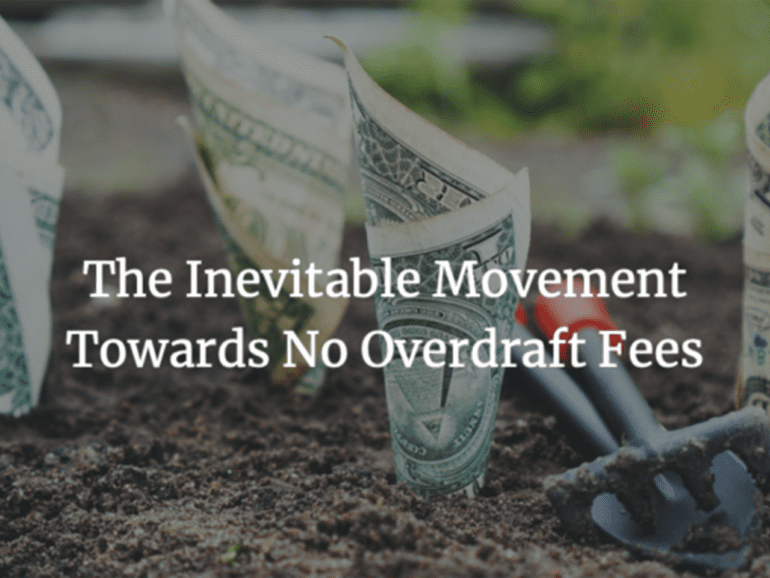I hate overdraft fees. They are the classic example of a product that is a win-lose proposition. The bank wins and the customer loses. In today’s world of transparency and accountability we are seeing a movement away from overdraft fees. This movement is being led by the digital challenger banks.
But first let’s look at the problem. The Center for Responsible Lending reported that large banks (those with over $1 billion in assets) earned $11.45 billion on overdraft fees in 2017. I have also seen studies that peg this number at $15 billion or even more when you include all banks and credit unions. Regardless, it is a very high number.
Now, those of us with healthy checking accounts can be blind to this problem. But it is real for tens of millions of Americans. And for those that incur overdraft fees it is rarely a one-time event. They will spend hundreds of dollars a year on these fees. And it shouldn’t be that way.
Many of the new challenger banks are making a name for themselves by promoting a new approach to fees. They are determined to create financial products that are good for consumers’ financial health. And one of the first things to go is the overdraft fee.
The Overdraft “Loan” with a 18,250% APR
Chris Britt, CEO of Chime, said in a recent American Banker article, “The notion of someone going negative by as much as $5 or $10, and then charging them $35 or $40 for an overdraft fee, makes no mathematical sense.”
Let’s take a look at the above scenario where someone overdraws their bank account by $10 and then pays a $35 fee. If this person pays back this fee and the original amount in seven days that adds up to an APR of 18,250%. Now, I realize it is ludicrous to use APR on such a short term “loan”, but the point remains this kind of fee makes no sense. Consumers are starting to recognize this and are moving to the neobanks in the millions.
I also really like what Dave is doing where you connect your bank account (or open one of their own) and then they learn the pattern of your typical income and expenses. If it looks like you might overdraw your account then they will notify you and ask if you would like to access a $100 advance at 0% interest.
This brings me to the premise of my argument. This is really a data problem. Should a bank overdraw our account for a $10 deficit when they know with near certainty that you are two days from pay day and on that day another $1,000 is going to be in this account. I think the consumer of tomorrow is going to demand that banks figure this out. Given that several fintech companies are already doing this I think the writing is on the wall for overdraft fees.
Many Challenger Banks Offer No Overdraft Fee Accounts
There are many fintech companies that offer standard checking accounts with no overdraft fees. Here is an incomplete list with a short description of each:
Acorns – Spend account (which includes Invest + Later) costs $3 per month and includes no overdraft fees.
Chime – their new SpotMe account allows up to $100 of overdraft protection with no fees (you must have a regular direct deposit) and an optional tipping service.
Current – Basic checking account is free and has no overdraft fees.
Dave – their no minimum checking account has no overdraft fees and they also offer 0% advances of up to $100.
Money Lion – their Credit Builder Plus product costs $19.99 per month but members can offset this entire fee with certain behaviors and this account offers up to $250 0% advances for direct deposit customers.
SoFi – their SoFi Money account earns high interest and charges no overdraft fees.
Stash – like Acorns, they are focused on investing and saving but they do provide a debit account through Green Dot that has no overdraft fees.
Varo – can overdraw account up to $50 with no fees for direct deposit customers who also use the debit card at least five times a month.
Now, I realize that none of the challenger banks on this list has their own banking license, although Varo’s is in process, and most are not operating profitably. They partner with existing banks to offer these accounts. It remains to be seen whether these new digital banks can avoid charging overdraft fees and build profitable and sustainable businesses. But what they are doing is educating millions of consumers that you should expect to pay no overdraft fees.
Of course, I should mention that many of the major banks also offer some kind of overdraft protection by linking a savings account to the main checking account. But given the cash cow that overdraft fees have become they are not highly motivated to offer a viable alternative.
The Answer is in the Data
There is so much data in the transaction history of a bank account. Fintech companies are now using this data for underwriting. And some, like Dave, are choosing to use this data to predict when someone will overdraw their account. And then provide that person with some help.
Now, with billions of dollars at stake I am under no illusion that overdraft fees will be eliminated any time soon. It is going to take decades before overdraft fees disappear completely.
But as consumers expectations change and these challenger banks gain traction I think we will see a tipping point. Customers will no longer sign up for accounts with overdraft fees. This will lead to an inexorable decline in fee revenue as more consumers seek out better alternatives and the challenger banks continue to scale.


